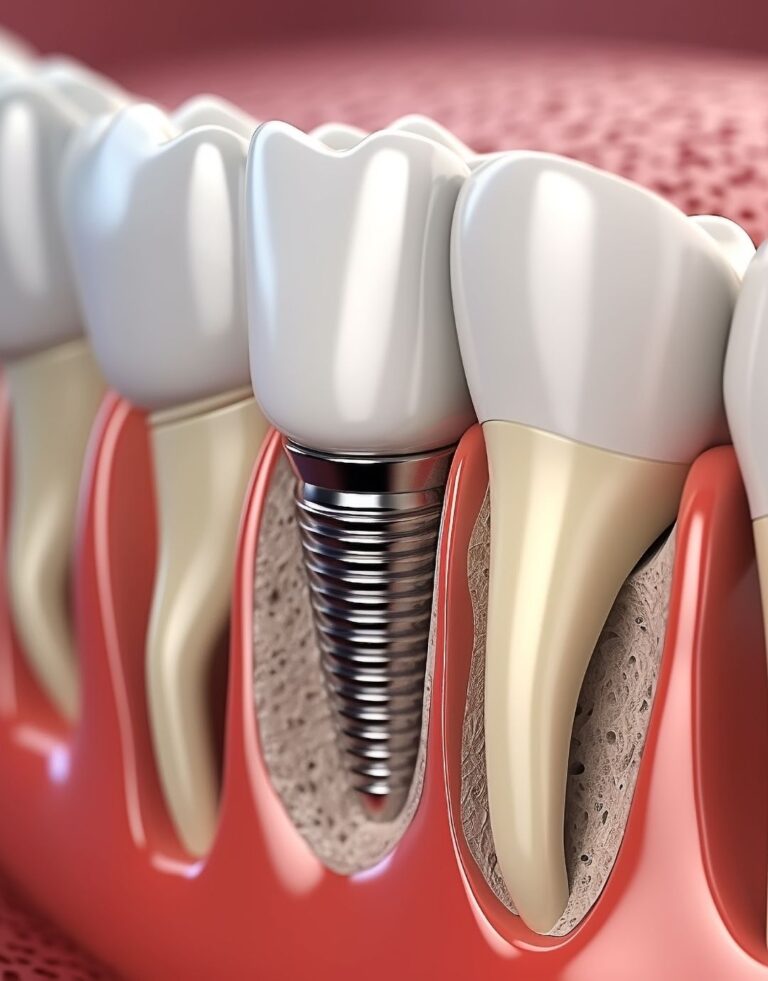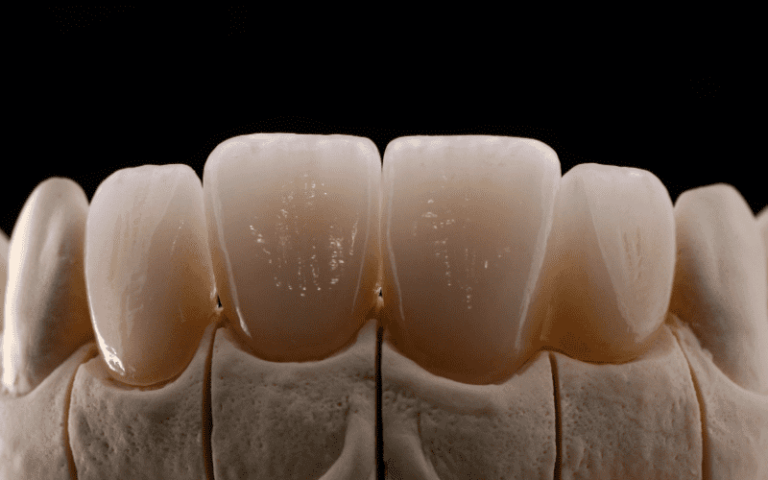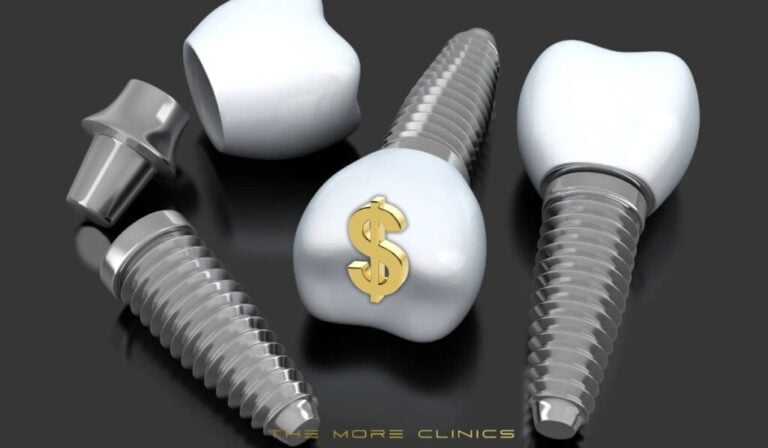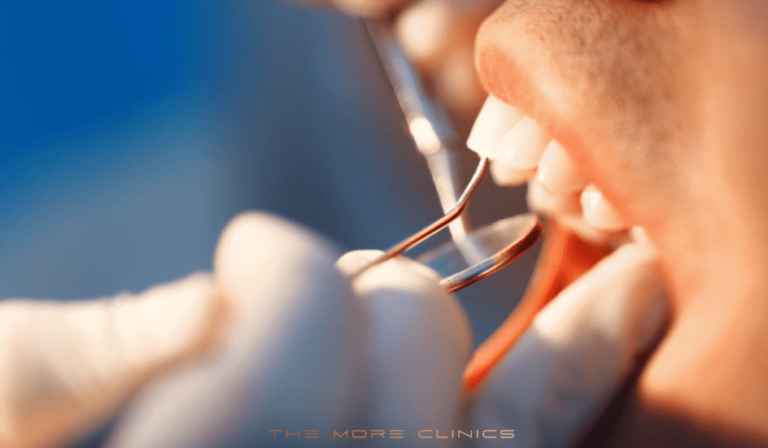Tooth Scaling and Root Planing Treatment
Tooth scaling and root planing, often referred to as deep cleaning, is a vital dental procedure aimed at treating gum disease and promoting oral health.
In this informative guide, we will explore what tooth scaling and root planing is, who may require this treatment, the step-by-step procedure, the benefits, potential risks, and the recovery process.

What is Scaling and Root Planing?
Scaling and root planing is a non-surgical dental procedure designed to remove plaque and tartar from below the gumline. It involves thorough cleaning of the tooth’s roots and smoothing the surfaces to prevent the recurrence of gum disease.
Who Needs Scaling and Root Planing?
Scaling and root planing are mainly recommended for individuals who have developed gum disease or gingivitis (early stage of periodontisis). If left untreated, gum disease can progress (periodontitis) and cause more severe oral health issues, including tooth loss.
This condition is caused by a buildup of plaque and tartar on the teeth, leading to inflammation and infection of the gums.
Your dentist may recommend scaling and root planing if you have:
- Pockets or gaps between your teeth and gums
- Gum inflammation and bleeding gums
- Receding gums
- Deep pockets of tartar buildup that cannot be removed with regular brushing and flossing

It is essential to undergo regular dental checkups to detect any signs of gum disease and prevent it from progressing.
Risk factors for periodontitis include:
- Poor oral hygiene
- Smoking
- Diabetes
- Genetics (family history of periodontisis)
- Malocclusion: misalignment of teeth
- Hormonal changes , such as during pregnancy or menopause
- Certain medications such as steroids and birth control pills
The Scaling and Root Planing Procedure
Scaling and root planing is usually performed by a dentist or periodontists (gum disease specialist). The procedure may be done in one or more appointments, depending on the severity of the condition.
Here are the general steps involved:
- Anesthetizing the area: The dentist will administer a local anesthetic to numb the gums and make the procedure more comfortable.
- Scaling: Using special tools, the dentist will remove plaque and tartar from below the gumline and between teeth.
- Root planing: The root surfaces of the tooth are smoothed out to prevent further buildup of bacteria and debris. This also helps in promoting gum reattachment to the tooth.

- Irrigation: The dentist will wash the area with an antimicrobial solution to remove any remaining bacteria and promote healing.
- Reevaluation: After a few weeks, you will have a follow-up appointment for your dentist to assess the effectiveness of the procedure and make any necessary adjustments.
Benefits of Scaling and Root Planing
Tooth scaling and root planing stands as the most effective treatment for gum disease in its initial phases.
This procedure offers several benefits, including:
- Remove plaque and tartar that can cause gum disease
- Prevent tooth loss and other severe oral health issues
- Reduce gum inflammation and bleeding
- Improve bad breath
- Allow the gums to heal and reattach to the teeth
Risks of Scaling and Root Planing
Scaling and root planing are generally considered safe procedures with minimal risks. However, some potential side effects may include:
- Soreness or discomfort in the treated area
- Tooth sensitivity to hot or cold temperatures
- Temporary bleeding of the gums
It is essential to follow your dentist’s aftercare instructions carefully to minimize any potential risks and promote a smooth recovery.
Recovery Process and Tips
After scaling and root planing, it is normal to experience some minor discomfort and sensitivity in the treated area. Your dentist may recommend over-the-counter pain relievers to alleviate any discomfort.
You should also avoid eating hard or crunchy foods that could irritate the gums while they heal.
To promote proper healing, it is vital to maintain good oral hygiene habits, such as brushing twice a day, flossing daily, and using an antibacterial mouthwash.
Follow-up appointments with your dentist will also be necessary to monitor the healing process and ensure that gum disease has been successfully treated.
Frequently Asked Questions
During the procedure, you will receive a local anesthetic to numb the area, so you should not experience any pain. After the procedure, you may feel some discomfort or sensitivity, but this can be managed with pain relievers and proper aftercare.
The deep cleaning recovery time can vary from person to person, but it typically takes a few days to a week for the gums to heal completely. It is essential to follow your dentist’s aftercare instructions to promote a faster recovery.
While scaling and root planing can effectively remove harmful bacteria and promote healthier gums, it is essential to practice good oral hygiene habits and attend regular dental checkups to prevent gum disease from returning.
Last Words from The More Clinics
It is crucial to understand that scaling and root planing are valuable non-surgical procedures for combating gum disease. These procedures are typically safe and entail minimal risks. Maintaining excellent oral hygiene practices post-procedure and regular checkups are indispensable for preventing a recurrence of gum disease. Remember, early detection through routine dental visits can prevent serious oral health issues.
At The More Clinics, we are committed to your dental health and well-being. We hope this guide has provided you with valuable insights into tooth scaling and root planing, a critical treatment for gum disease. Early detection and appropriate treatment are key to preserving a healthy smile. If you have further questions or require professional assistance, please don’t hesitate to contact us. Your oral health is our priority.
GET A FREE CONSULTATION!
Let’s Start Planning Your Treatment %100 Guarantee Results.

Medically Reviewed by Mehmet Can Kılınçaslan who specialized on Periodontology and Implantology






